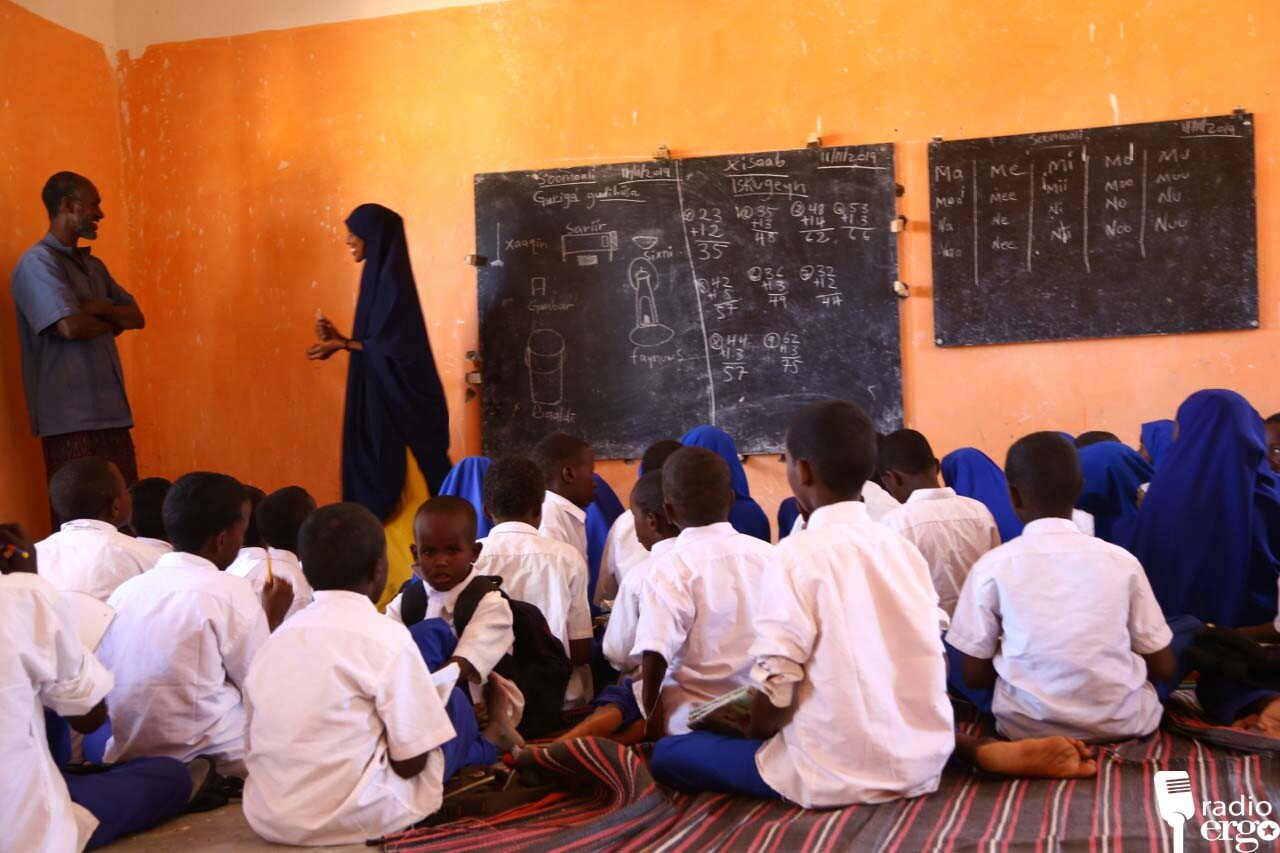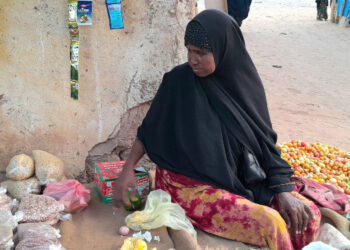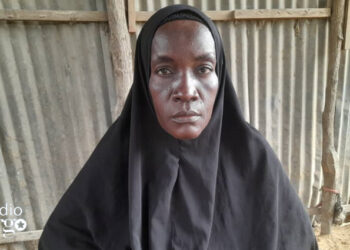(ERGO) – Abdullahi Nur Osman, the president of Hormuud Telecom Foundation, recently visited Beledweyne and other flood-affected southern Somali towns to see how local relief efforts were going. Local businesses, including Hormuud, and local communities have raised huge amounts of cash and gathered food commodities for the flood victims. However, there appears to be little coordination or accountability behind the distribution of this locally gathered assistance.
Radio Ergo’s Editor, Muhyadin Roble, asked him what he witnessed on his visit.
Abdullahi: Most of the town’s population have been displaced, as half of Fourth Suburb [Howlwadag] population has fled. People moved outside town and settled on higher ground. Some of them are living in huts made of sticks, other have tents. Likewise, in the villages surrounding the town, many people were displaced by the floods. There are also villages that are inundated and cut off from other areas. In the town, there are houses where people are still stranded.
Muhyadin: It is now days and weeks since the river broke its banks and flooded the town. Is there a possibility that people could return yet to their homes?
Abdullahi: Though most of the town is still under floods, there are a few areas where the flood water has receded. But the areas where water has receded and where the roads are passable roads are limited, so people have not yet returned.
Muhyadin: Massive relief aid organized by civil society, companies and government agencies has been pouring into Beledweyne town and other flood-affected areas. How are those efforts being coordinated?
Abdullahi: Yes, it is true that a lot of aid has come from Somali people, including diaspora and locals. There are also international agencies supporting people and involved in sanitation activities like constructing pit latrines and bringing in clean water for people and that is important to prevent the outbreak of water-borne diseases. But the delivery of aid is not being well coordinated, and there is also lack of surveying about the most affected people.
Muhyadin: Are there some places where aid is yet to reach?
Abdullahi: There was a village we visited recently where people told us that they were displaced on 18 October and they are yet to get help. They also informed us that there are 735 displaced families and that there was another village where 350 displaced families arrived. Therefore, it seems that the aid is mostly reaching only those settled on the outskirts of the town.
Muhyadin: How is the aid being distributed?
Abdullahi: Actually relief aid is coming in a good way, there is aid coming from Galgaduud and Puntland. In Mogadishu, a committee was formed by the religious leaders and traders and it has already sent one million dollars, which is being distributed among people living in flood affected areas. Most of this money was given to Beledweyne town, while some amount was sent to Bardale and Middle Shabelle region. Aid assistance was distributed in accordance the needs of the people.
Muhyadin: As the aid is pouring into these areas and you have been involved in humanitarian issues for a long time, how do you think good coordination could be achieved so that all those affected could be reached?
Abdullahi: Even now it’s reported that people fear about further flooding in Beledweyne and if that happens, it would be another burden. So it is important to get an office working on managing and directing the aid. The office should collect data about the affected people and the available aid. That office should guide and direct aid to where it is needed. If some people deliver water, others deliver food or drugs – they should be referred to the office. Now there are doctors from Mogadishu who are working there, from the Somali doctors union. In fact they are working hard, and we thank God that diseases resulting from the displacement are being contained.
People have resettled in an open area, so it is not congested and there are spaces between their huts, which reduces the risk of disease. Latrines were constructed and people were given clean water. However, what most Somali people brought was foodstuff, while the international NGOs put more effort in to bringing clean water.
There is a need to get a variety of different commodities delivered and to know what is being brought. It is important to get a team to record what the people received and what they need, as well as disseminating information about the aid, and giving guidelines to those who come to help the people.
Muhyadin: As far as you know was there cash distribution?
Abdullahi: Of course, some people were distributing food, others were distributing cash and there were those who were distributing both food and money. Some agencies were registering people and took a list of their phone numbers, and are expected to send money via their mobile phones.











